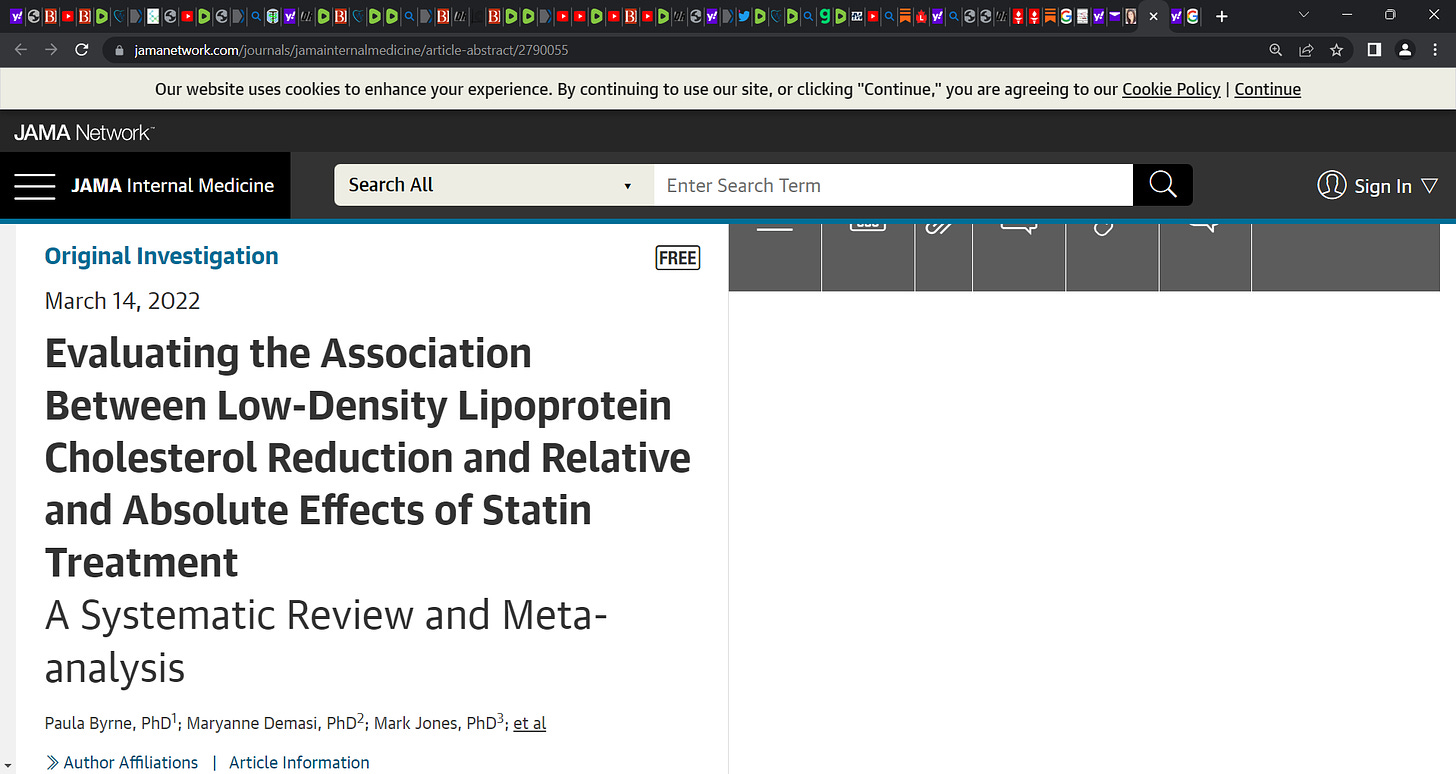Paul Alexander | 8 May 2023
STATINS are IMO of NO real benefit & the public has been lied to and deceived, be very careful! Analysis by Byrne & Demasi et al. suggests (n=21 trials, 144,000) no consistent relationship between
lowering LDL-C with statins and death, heart attack or stroke; did not necessarily translate into a meaningful benefit for the patient; RRR of 29% becomes ARR of 1.3%, doctors are deceiving patients

SOURCE:
https://jamanetwork.com/journals/jamainternalmedicine/article-abstract/2790055
‘In this meta-analysis of 21 randomized clinical trials in primary and secondary prevention that examined the efficacy of statins in reducing total mortality and cardiovascular outcomes, there was significant heterogeneity but also reductions in the absolute risk of 0.8% for all-cause mortality, 1.3% for myocardial infarction, and 0.4% for stroke in those randomized to treatment with statins compared with control, with relative risk reductions of 9%, 29%, and 14%, respectively. A meta-regression was inconclusive regarding the association between the magnitude of statin-induced LDL-C reduction and all-cause mortality, myocardial infarction, or stroke.
Meaning The study results suggest that the absolute benefits of statins are modest, may not be strongly mediated through the degree of LDL-C reduction, and should be communicated to patients as part of informed clinical decision-making as well as to inform clinical guidelines and policy.’
Byrne & Demasi et al. did a fine piece of work here. This graph by them is critical as it shows the potent lie told to us by doctors, academic researchers, and pharma by reporting the relative risk reduction (RRR) instead of absolute risk reduction (ARR).
It is such a devastating lie, let us look at this example:
For example, if your baseline risk of having a stroke is 0.2% and taking a drug A reduces that risk to 0.1%, then in relative terms the risk is halved so this is a 50% RRR (control event rate – experimental event rate/control event rate) x100% so 0.2-0.1/0.2 x 100=50%), yet in absolute terms this is only 0.1% (ARR) which is 0.2-0.1=0.1%.
Another major flaw is the often use of composite endpoints e.g. cardiovascular events, whereby non-patient important outcomes prejudice the results often when the patient-important primary outcomes (hard, objective outcomes) offer fewer events to the totals.

- ‘JAMA Internal Medicine has published our new systematic review and meta-analysis on 21 statin trials involving 143,532 participants.
- Despite the widespread view promoted by public health, our new study found no consistent relationship between lowering LDL-C and death, heart attack or stroke, following statin therapy.
- Doctors are not effectively and transparently communicating cardiovascular risk to their patients, thereby not allowing informed decision-making.
- We concluded that the benefits of statins were minimal, and most of the trial participants who took statins, derived no clinical benefit.’
Demasi’s substack is worth the read on this issue. I covered this a year ago yet it is in the media again and so a revisit.


